Eye Health Nutrition: Foods and Supplements to Support Your Child’s Eye Health
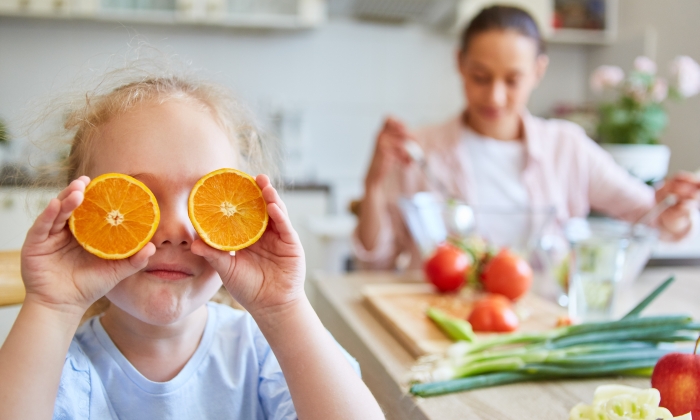
- Proper nutrition can promote good eye health and protect your child’s vision.
- Specific vitamins and minerals can protect your cells from harm, promoting eye health.
- Ensuring your child eats a healthy mix of fresh foods is great for their overall health now and in the future.
- Carrots, green leafy vegetables, nuts, and fish are among some foods known to support vision.
- Vitamin C, beta carotene, zinc, and lutein are essential nutrients that defend against eye diseases and encourage good vision.
When you were expecting your baby, you probably wondered what eye color they’d have. Would they inherit your eye color or your partner’s? When they were born, you likely gazed into their eyes, knowing you were one of the first things they’d laid eyes on. It can take over a year for your child’s eye color to settle, so they may have changed color from the first life-changing cuddle.
Now that your child is growing, you may be thinking about protecting their eyes. Nutrition is a crucial factor in promoting eye health. Certain foods contain vitamins and minerals essential for eye health and are packed with other nutrients your body needs.
Ensuring your child eats a healthy, balanced diet is an excellent way to support eye health and set them up for a long and healthy life.
Foods That Promote Healthy Eyes
Good nutrition can promote good eye health and protect against eye disease, so it’s worth ensuring your kids eat a healthy diet. Instill good eating habits now so your child can enjoy a lifetime of eating well. Offer your child plenty of fresh veggies, fruits, greens, and a healthy mix of other foods.
Colorful Fruits and Vegetables
Carrots

Carrots won’t help you see in the dark, no matter what you grew up believing, but this crunchy orange vegetable is fantastic for your eyes. Rich in beta-carotene, carrots are good for Vitamin A, which promotes good eye health. Vitamin A deficiency can lead to night blindness, so in a way, those World War II propagandists weren’t lying when they said carrots could help with night vision.
Carrots are a popular vegetable amongst kids and are often served cooked as an accompaniment to dinner. They can also be grated raw as part of a salad, baked into a carrot cake, or added to a hidden veggie pasta sauce.
Spinach and Kale
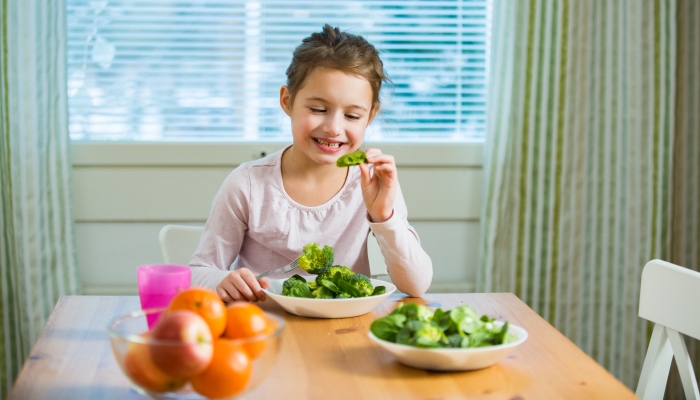
Spinach and kale are leafy green vegetables high in lutein and zeaxanthin, antioxidants promoting healthy eyesight. These antioxidants eliminate free radicals in your eyes; if left in place, free radicals can damage cells and leave you at risk of various conditions and diseases.
Age-related macular degeneration is an eye condition that causes your central vision to blur. Damage to the macula from age-related eye disease leads to a blur of your central vision. This condition has no cure, but eating spinach and kale can protect you from the disease. Eating half a cup of spinach or kale daily can significantly reduce your chance of age-related macular degeneration.
Spinach and kale can be added to curries, pasta sauces, and salads. Spinach can be blended into a smoothie or added to a homemade popsicle for pickier eaters.
Oranges and Berries
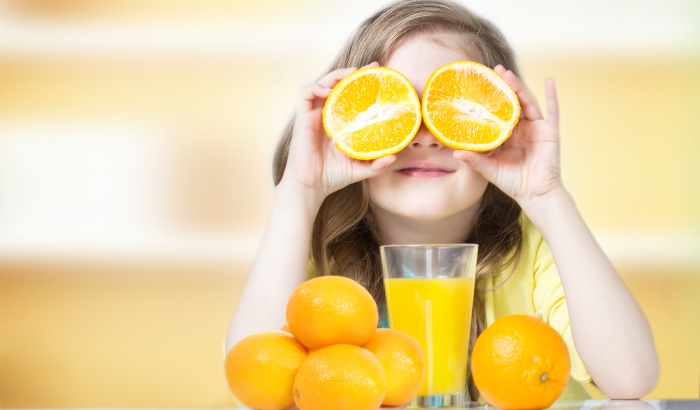
Beta-carotene is an orange or red pigment found in many fresh fruits and veggies. Oranges and berries are high in beta-carotene, which your body can easily convert into Vitamin A. Much like the carrots mentioned above, oranges and berries benefit eye health thanks to the high levels of Vitamin C.
Another benefit to these fruits is that most kids are happy to chow down on them. Fresh berries and oranges taste great when added to yogurt or granola. They can also be enjoyed by themselves as a mid-morning snack. You could buy frozen berries to add to overnight oats or crumbles to save time and money.
Fish and Seafood

Salmon
Omega-3 fatty acids are good for the eyes, and salmon is high in these essential fats. Omega-3 fatty acids are good fats that promote good visual development and protect the retina. Add salmon to your pasta sauces or serve salmon tacos to encourage your kids to enjoy this fish.
Beans

Kidney beans
Kidney beans are high in zinc, an essential nutrient that helps to protect the retina. Thanks to the high zinc levels, these tasty little beans can also lower your risk of cataracts. Kidney beans are high in bioflavonoids, which keep your eyes healthy and repair damage. They’re a great vegetarian protein source, too.
While kids can be fussy with legumes, kidney beans usually get the green light. Add them to a mild chili and serve over a baked potato or rice. You can also use kidney beans to throw together a tasty bean burger to serve with chips for a fun Friday dinner.
Nuts and Seeds

Almonds
High in Vitamin E, almonds are excellent for optimal eye health. Vitamin E prevents free radicals and thus protects your eyes from damage.
Almond butter can be used instead of peanut butter or served alongside apple slices as an after-school snack for kids. Flaked almonds can be added to pancakes or oatmeal for some extra nutrients.
Sunflower seeds
Selenium is an essential mineral that protects the eyes from damage. Selenium is an antioxidant that neutralizes free radicals and protects the eyes from harm. Sunflower seeds are high in selenium and excellent food for healthy eyes. Add sunflower seeds to a smoothie or sprinkle them in your child’s oatmeal.
Supplements for Enhanced Eye Health
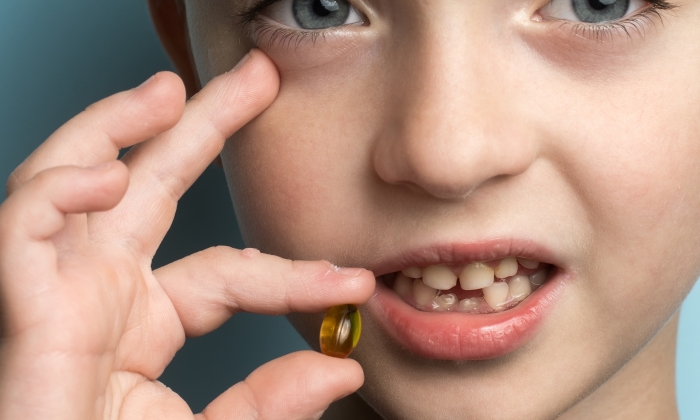
Whether you’re worried about your child’s diet or simply want some additional peace of mind, there’s no harm in giving your child vitamin supplements. It’s not always easy to ensure your child gets every nutrient, especially if your child is a picky eater.
Omega-3 Supplements
Omega-3 fatty acids are an essential nutrient that promotes good, healthy vision. Without enough omega-3 fatty acids, you may suffer from dry eyes and eye irritation. Choose a daily dietary supplement for your child that contains this good fat to protect their eyes.
The recommended daily allowance (RDA) of omega-3s is 0.5 g from birth to 12 months, 0.7 g for 1–3 years and 0.9 g for 4–8 years.
Multivitamin Tablets for Kids
Multivitamins are an increasingly popular way for parents to ensure their kids enjoy a range of essential nutrients. It’s important to note, however, that not all multivitamins are created equal—they don’t all contain the right amounts of essential vitamins and minerals. Do your homework when choosing a daily vitamin supplement for your child.
Lutein and Zeaxanthin Supplements
Lutein and zeaxanthin are essential in protecting macular health and your child’s future eyesight. Though the general public does not often discuss lutein and zeaxanthin, they are important in developing and protecting your child’s vision. Many people fall short of the suggested daily intake, so it may be worth giving your child a daily supplement for optimal eye health.
Lifestyle Recommendations for Eye Health

As well as eating an eye-friendly diet, there are other ways you can encourage good eye health for your child. These small lifestyle changes could greatly impact your child’s future eye health.
Limit Screen Time
Children today are relying on screens more than ever before. If you add up the time your child spends looking at a screen, the answer might shock you. Consider gaming, phone use, laptops, tablets, screens at school, and good old-fashioned television. We rely on screens for entertainment, social interactions, and academia.
Aim to limit your child’s screen use to a few hours daily. You’ll need to work with your child to find a healthy balance for screen time. You should also encourage regular eye breaks to avoid digital eye strain.
Encourage Outdoor Play
Time spent outdoors is good for the eyes. Natural light is suitable for vision, and the sun’s Vitamin D helps protect your eyes. People also tend to look further in the distance when spending time outdoors, which is good for the eyes.
Make sure your children spend a healthy amount of time outdoors each day. Encourage outdoor hobbies that will encourage a love of the great outdoors.
Regular Eye Check-ups
One of the best things you can do for your child’s eye health is to ensure regular checkups with an eye doctor. Early detection can slow down deterioration and protect your child’s vision. Just as you regularly take your child along to the dentist, you should visit an eye doctor for an annual checkup. Even babies can have eye checks at the eye doctor’s office.
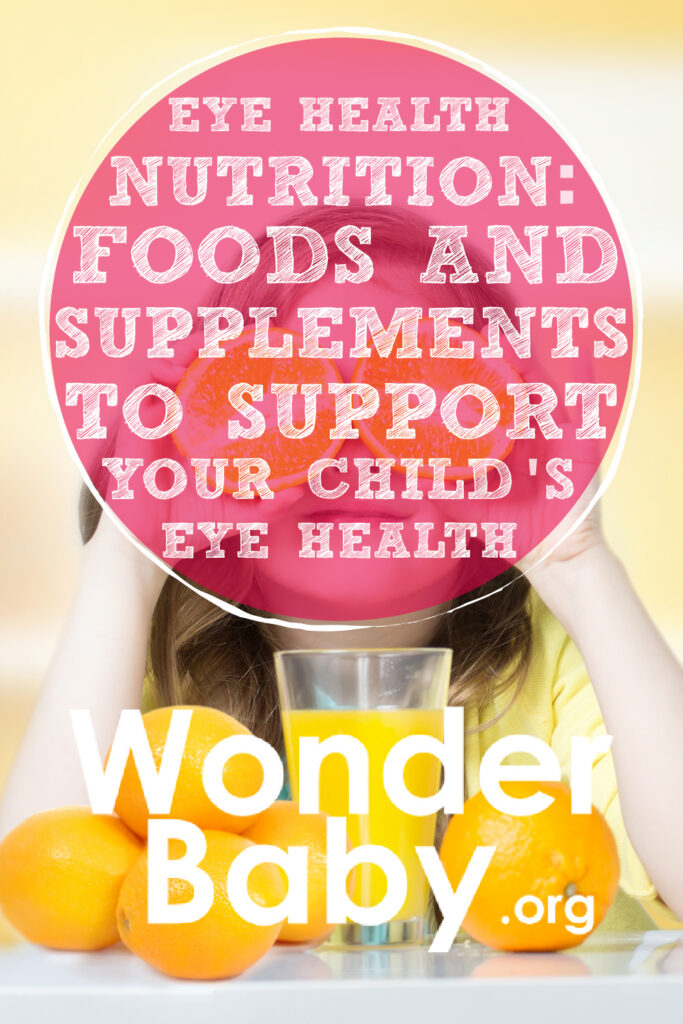
Related Posts

Eye Conditions and Syndromes, Visual Impairment
Neuralink Announces Plans to Restore Sight to the Blind with Brain Chip
Elon Musk’s company Neuralink has announced plans to begin human trials of its new “Blindsight” brain chip by the end of 2025.

Health & Nutrition
Can Baby Skin Care Products Expire?
Is that forgotten tube of diaper rash cream still safe to use? Learn more about the expiration dates of popular skin care products for infants.

Health & Nutrition
Boosting Immunity in Kids: 3 Tips for a Healthy Winter
Parents can help boost their kids’ immunity during cold and flu season by maintaining healthy eating, sleeping, and exercising habits in the winter.